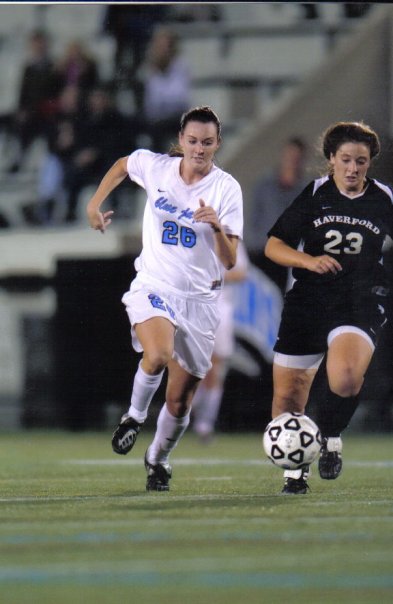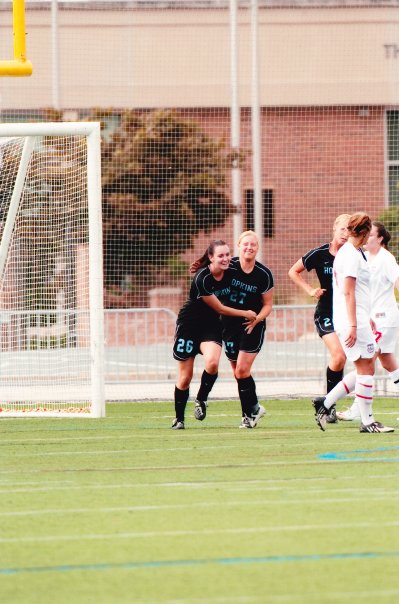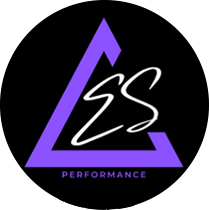
28 Jul What It Takes To Be The Best At What You Do
Ready for a depressing opening line? Awesome!
Here it is: balance is a myth.
Yeah, that hurts, doesn’t it?
Whether you want to be a Division 1 athlete who eventually goes professional, or a dad who wants to have economic security, or who wants to be a good father to his kids, or a business owner who wants to create impact, or a YouTuber who wants to reach one million subscribers, or a medical doctor who cures thousands of patients, or a musician who wins a Grammy, ain’t nothing going to be balanced about your life.
And it’s the truth.
Continuing the conversation with the music industry, one living example I turn to is the rapper, Logic.
He started his rap career homeless in Gaithersburg, Maryland, lived in his friend’s basement for a year, made raps and beats daily, then moved to LA, worked every day, and became triple platinum and Grammy nominated.
In just five year’s time.

Every day for five years, he wrote. Every day for five years, he didn’t go out. Every day for five years, he said no to drinking with friends. Every day for five years, he was in the studio making music. Every day for five years, he mastered his craft.
Think about that: it makes sense why he became so successful. He worked every day for five years, didn’t bat an eyelash, nor did he get distracted from the partying and alcohol, or lose focus from other’s killing it in industry. With his dedication, he exploded in the hip-hop scene, and made a name for himself as one of the greatest rap innovators of his time.
And there wasn’t anything balanced about his life. Of course, I could go on and on with examples – from Messi, to Albert Einstein, to Eminem, to Oprah, to Michael Jordan, but I won’t. It doesn’t take a degree from Harvard to know that being the best at what you do requires consistency and sacrifice. For years.
Taking the conversation back to Logic, did he have time to meditate a few times a week, go to Yoga Flow on the weekends, drink Kombucha tea under a willow tree, or enjoy the opulence of the LA night life? Absolutely not.
Balance is a myth.
You see, I’m tired of the moderation and spiritual folks exclaiming, “you just have to find balance and you’ll be good!”
What does this even mean? And they better not tell me to, “connect to the Universal energy” anymore to solve my high performing anxiety. It ain’t that simple.
Also mind you, everyone’s definition of balance is different, so no one really knows what the hell it means anyway.
Sure, recovery is paramount and I will discuss this later. But, if you want to be a total boss and own your genius in whatever you’re doing, you have to swallow a hard, stale pill and accept that it’s time to get to work.
During vacation. Or on a late at night. Or on the weekend.

Most likely, none of this is what you want to hear.
Good. I’m not here to be the ra-ra cheerleader who wears a “good vibes only” t-shirt, and who walks around with a handful of healing crystals.
While I’m sure you expected me to shell out tips on how to live in moderation, this article isn’t about that. This article is about transparency and the reality of high performance.
Admittedly, I don’t want to sit here and pretend I have a balanced life. I don’t.
Take it from a woman who has worked 365 days a year in some capacity – from writing, to coaching, to strategizing, to planning – since 2012. What’s funny is, people always ask me to “pick my brain” for tips on becoming a good writer and coach.
Here’s a quick tip: get to work.
It’s nothing revolutionary, nor is it worthy of a Netflix documentary, but it’s so freaking true.
And I’d argue most high performers – from professional athletes, to TV personalities, to actors, to musicians, to best-selling authors – put their head down, got to work, and have never lived in balance. Moreover, they realized what they were doing was worth the sacrifice, and their values kept them loving their crafts, amidst all of the madness.
I can say the same.
I attribute much of my success – in soccer, academics, career and writing – to not having balance from childhood until now. But also, defining my personal values and realizing they were worth the roadblocks along the way.
In retrospect, I smile at the tough times for all these years.

In high school as a young soccer player, I said no to basement drinking parties with friends. I said no to shopping at the mall with my girls. I said no to late night sleepovers. I said no to senior prom.
In college, I locked myself in the dungeon of the library. I practiced my soccer skills on my off days to hold my starting position. I cried in my apartment from the stress of school and being a record breaker on the women’s soccer team.

And now, I coach 40 hours a week, write blogs on the weekends, have ten articles in the works all at one time, have one book in the works at one time, film exercise videos, upload them to my database, reply to DMs from strangers who expect a reply within a second, see my best friends, spend time with my parents, all while trying to make time for me.
So again, repeat after me: balance is a myth.
Okay, let me back up: I don’t want to be totally depressing in my prose. There is hope.
Even during the stress of high performance, instead of trying to balance it, acknowledge it and take action.
There will be seasons when you have to grind it out, practice 3-4 times a week, train with your skills trainer, see your strength coach, ace your exams at school, and write three papers all in a week’s time.
There will be seasons when you have to up the ante on studying, sleep in the library, finish that paper, and get a college degree with Dean’s List recognition.
There will be seasons when you have to drive your kids to three tournaments in one month, book hotels, pack a picnic of snacks and hydration drinks so they don’t faint, spend extra gas money, and make sure your kid gets seen at the biggest showcases.
There will be seasons when you have to stay at the facility until 9pm at night, type up invoices, clean the bathrooms, and squeak in a workout of your own.
And that is all okay.
Honestly, I want to normalize all of this.
With that said, the more you can move into acceptance that balance is a myth, and working hard toward a goal, being a sports parent, staying consistent for the long haul, studying hard in school, working on getting that promotion, earning that starting position, getting that college scholarship, being a good business owner, or leading goal scorer, the more you’ll be able to enjoy the process.

Sometimes, the grit and the grind are the most rewarding. Too, when you look back on the chaos of it all, you can proudly say to yourself, “that was an intensely enjoyable ride.”
You can pat yourself on the back for enduring the stress. You can find joy in finding out what you were made of. You can smile at the hard times and realize they were all part of the process of becoming a better human. You can marvel that the benefits outweighed the costs after all.
So now that we know balance is a myth if you want to get good at what you do, how can you manage it? After all, high performers do need itty bitty moments of escape in order to come back with passion and tenacity, and keep the momentum going.
While every ounce of recovery is needed, I’d argue you’re not always given the time to truly regroup and zen out with your cat in your bed.
So if this is the case, what else can you do to regain a pep in your step?
Let’s do this:
1. Change your perspective
Instead of saying “ugh, I have to do this…” say, “I GET to do this.”
It’s amazing what changing your perspective does, even when you’re a high performer who is constantly in go mode.
If you have a ton of projects, trainings, deadlines, games, practices, how about shifting your perspective to the gift of being able to do all of these things in the first place?
There was one time I wanted to skip practice because I was exhausted from school (like everyone else), but I realized I had to push through. My body could handle it. And it did! That night, I had a breakthrough moment as a player and learned how to nutmeg someone, which later on, became my signature move.

Looking back, had I decided to miss that critical practice, I’m not so sure I would’ve learned that specific skill that evening.
Change your perspective. It does wonders.
2. Be grateful
This much I know: gratitude is a game changer. Especially in terms of happiness and fulfillment, the more we can find the silver lining in anything, the more we can turn stress into positive energy.
So you have five games this weekend? Be grateful you can move your body and be out in the sun.
So you have more work assigned from your boss? Be grateful he trusts you to handle it.
So you have to drive your kids to several practices a week that are an hour away? Be grateful they aren’t couch potatoes, or worse yet, drug addicts.
So you see your skills trainer, team coach and strength coach all in one week? Be grateful you have mentors and resources to help you with your development on the field and in life.
Gratitude is paramount. Say thanks in every crappy situation and you realize life is actually awesome.
3. Take back control
Remember, you are always in control.
When you feel you are pushing too hard, your energy is dying, your soul is being totally sucked, your mood is becoming cranky, or your body is aching, or you’re getting overuse injury, or your sleep quality is declining, your nutrition is toxic, or your creativity and logic are gone, then know you are in control to pump the brakes. These are all legitimate signs when the grit of high performance becomes detrimental.
High performers’ minds and bodies are smart: they always let them know when it’s time to chill.
For me, after releasing Total Youth Soccer Fitness, an immensely stressful and overwhelming body of work, I kept coaching my in person athletes during their off season, instead of taking time to myself.
I kept going until my body had two faint spells in less than 48 hours, and I had to be admitted to the hospital for anxiety.
Again, I’m not perfect and I suffered the consequences, but what did I do? After being discharged from the ER, I took two weeks off. No social media. No coaching. No writing. Nothing.
As hard as it was for me to take a step back from my passions, my body and mind knew what was best.
Pay attention and tweak accordingly.
5. Laugh
Whenever you have too much on your plate, take a step back for just ten seconds, and laugh at it all.
Are you behind on a studying deadline? Laugh.
Are you swamped with driving the kids to practices? Laugh.
Are you overwhelmed with college recruiting pressure? Laugh.
It’s magical when you find the humor in how much of a at race we are caught up in with school, sports and career and parenting and creative pursuits. It’s freaking crazy, to say the least.
Remember, we are on a rock floating through outer space. It’s hilarious how the smallest things burden us.
I urge you to laugh at it all.
Yes, be relentless, serious, focused and consistent in what you do, but don’t forget to also have fun with it all – the stressors, the obstacles, the haters, the nay-sayers, the trolls, the gossipers, the problems, the setbacks, the nights in, the weekends lost.
To be the best at what you do, there has to be a whole lot of sacrifice and persistence going on, aka no balance.
And the more we can accept balance is a myth, the more power we have to alter our perspective, take back control, be grateful, and most importantly, laugh at it all.
That’s the only way to sanity within the insanity.


Steve Brandt
Posted at 20:48h, 28 JulyAnother article that proves to me that the youngins are the best
erica
Posted at 21:12h, 28 JulyThank you!!!!